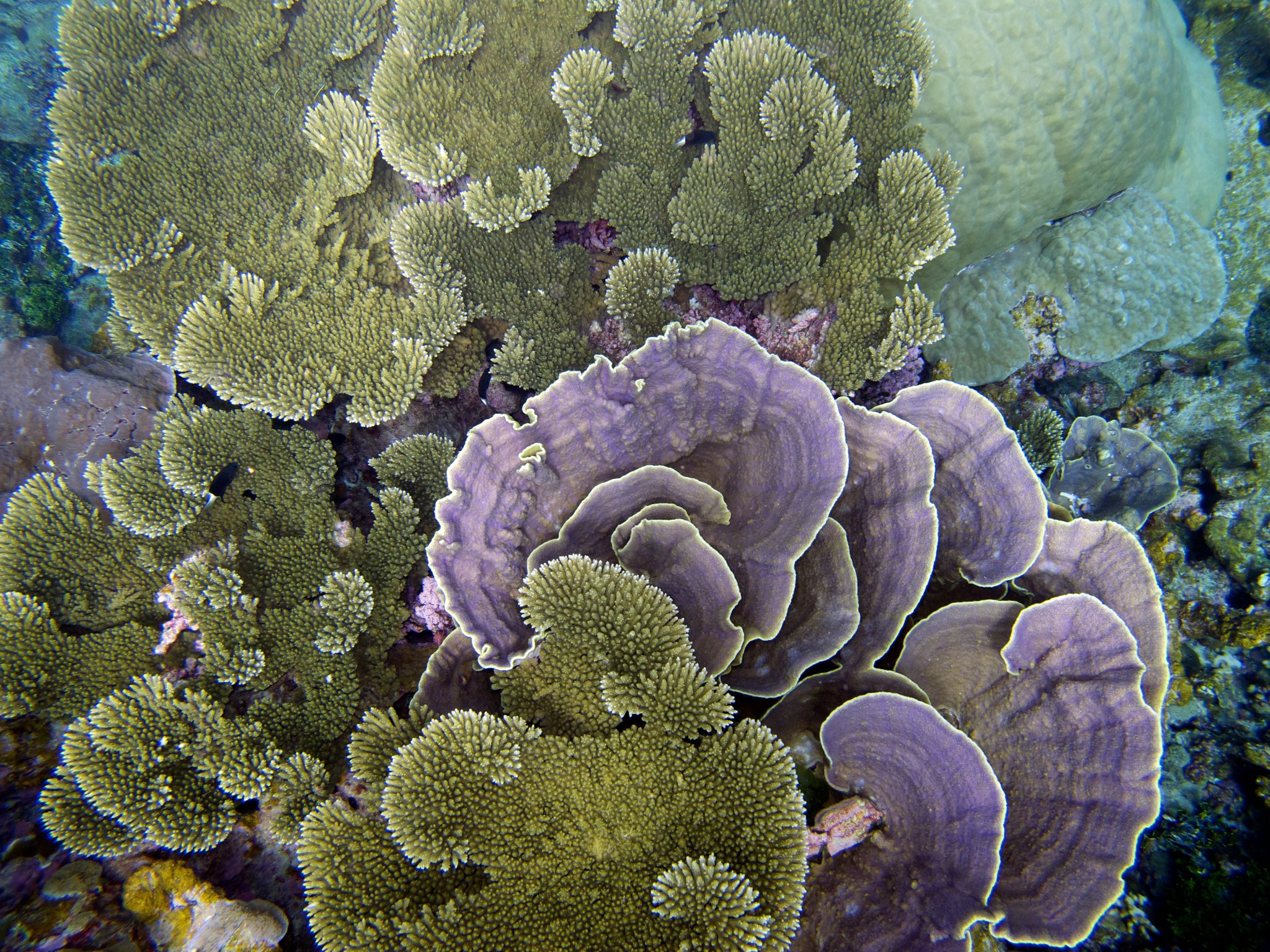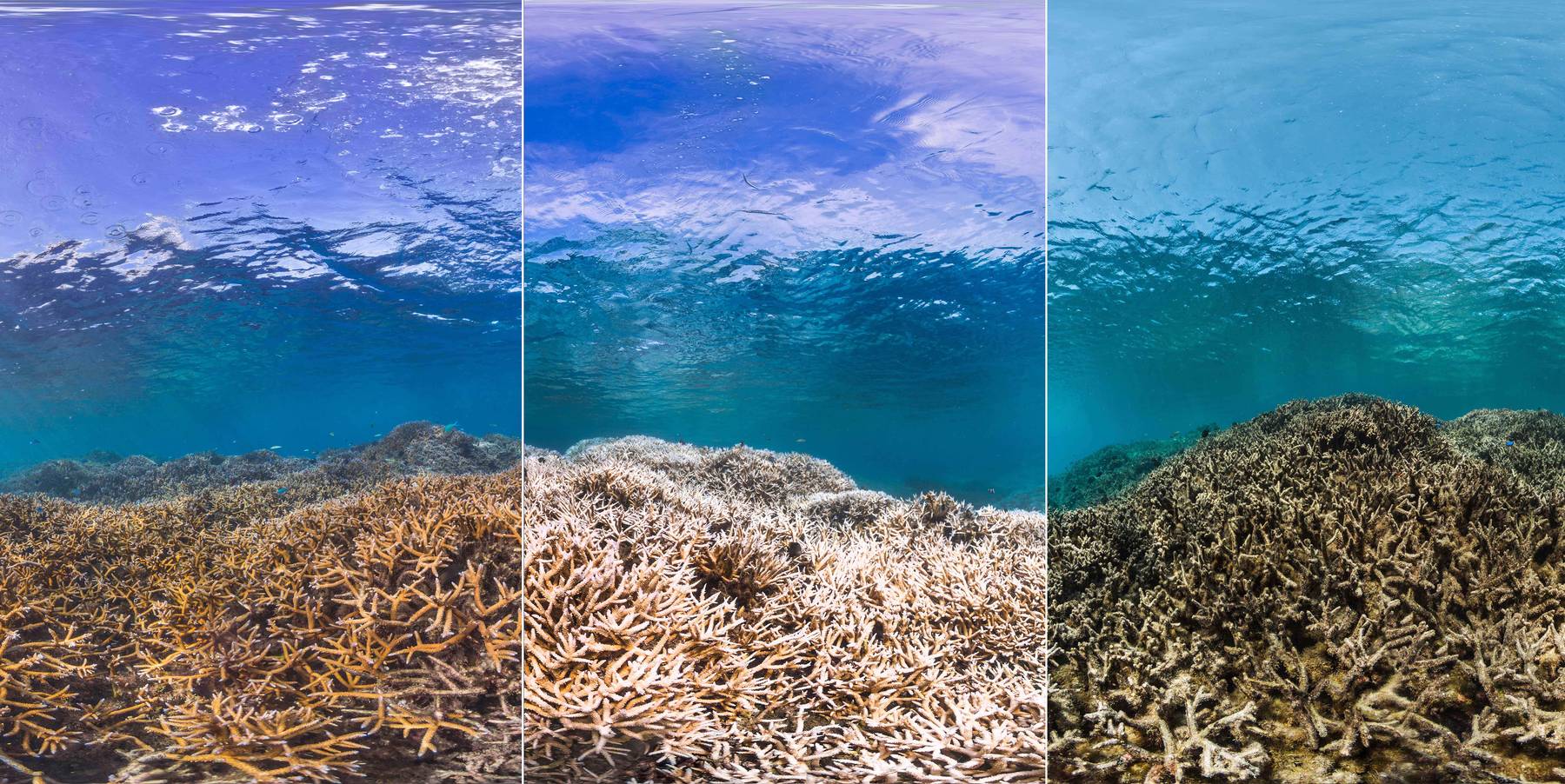coral bleaching
using remote sensing data and machine learning to study and predict coral bleaching events
project summary
Coral reefs are one of the most important oceanic ecosystems, yet they are under extreme environmental threats. In the recently issued IPCC report, it is projected that coral reefs will decline by 70-90% by 2100 under the current 1.5°C warming trajectory, and by >99% with a global temperature increase of 2°C. Mass coral bleaching events are the main driver of this reef degradation. Unfortunately, it is not currently possible to monitor bleaching events on a global scale, the environmental drivers are not fully understood, and reliable forecasts are not available to reef managers.
This work takes advantage of technological advances to leverage both the power of modern neural network systems, and large remote sensing datasets. Using remotely sensed data, it aims to evaluate bleaching events on coral reefs in real-time, forecast the likelihood of bleaching events in the near future using a machine-learned model, and evaluates environmental drivers of the problem.
The model's predictions may be used by ecologists to gain a better understanding of global reef health on a daily basis, reef managers and governments to better protect their local reefs, and the scientific community as we better understand the drivers of mass bleaching events.
background
The oceanic equivalent of tropical rainforests, coral reefs boast astounding biodiversity and hold tremendous value to humankind. Estimates of reef diversity vary wildly from 500,000-10,000,000 distinct species, but even conservative evaluations state that reefs support one quarter to one-third of all ocean species (Knowlton et al., 2010). From a general biological standpoint, 32 of the 34 recognized animal phyla can be found living on coral reefs (Moberg & Folke, 1999).
Surprisingly, corals themselves are not significant contributors to this richness. Similar to the trees in a rainforest, coral provide the infrastructure that allows life to flourish. There are fewer than 1,000 calcifying coral species with a footprint of only ~0.1% of the ocean surface, but the prolific reef building ability of these few species creates these biodiversity hotspots.
Because of this, better understanding and improving the health of coral reefs has outstanding leverage for improving the broader health of the oceans.

A healthy reef - Palmyra Atoll, 2011
coral bleaching
Coral have a unique symbiosis with an algae. The coral harbors the algae in its tissues. In exchange for the safe environment near to the bright sunlight of the ocean surface, the algae produces up to 90% of the coral’s nutrient requirements through the products of photosynthesis. The presence of the symbionts in the coral’s tissues is visually apparent as the algae composes the golden-brown portion of the coral’s color.
Unfortunately, this symbiosis is notoriously finicky. Under most any condition that places the coral under stress (e.g. high or low temperatures, changes in salinity, disease, high UV irradiation, etc.), the host coral ejects its symbiont. Without its symbiont, the ruddy coral turns a bright white or neon, and begins to starve. If the coral is unable to re-recruit a population of symbiotic algae, it will starve to death in a matter of weeks. This is the phenomenon called coral bleaching.

A reef before, during, and after a bleaching event - American Samoa, Dec 2014, Feb 2015, Aug 2015. Photo: The Ocean Agency / XL Catlin Seaview Survey
bleaching triggers
On a reef, this process of coral bleaching can occur en masse, commonly correlated with prolonged increases in sea surface temperatures. Because sea surface temperatures are increasing with climate change, the severity and frequency of mass coral bleaching events also are increasing.
Though warm water temperatures are typically a bleaching instigator, high sea surface temperature does not always cause a bleaching event to occur. Accordingly, researchers and reef managers oftentimes look towards a combination of factors that indicate mass bleaching may occur. These include looking at the duration of time that temperatures have been elevated, cloudiness, lack of water turbidity and flow (doldrum conditions), and more. Beyond the loose association of high temperatures playing an outsized role, the precise contribution of each environmental factor is not well known.
Without a clear understanding of the combination of variables that induce mass coral bleaching, and the relative importance of each environmental condition, we have gaps in our fundamental understanding of coral physiology and reef ecology, are unable to adequately forecast when bleaching events are likely to occur, and may be lacking exploring strategies for addressing the problem.
global monitoring
Mass coral bleaching events are also challenging to monitor on a global scale. Reporting and evaluating bleaching events requires trained observers to swim transects over reefs assessing the severity. This approach is limited by the availability of personnel, and their frequent access to remote reefs.
In the same way that we can monitor forest health globally using satellite imagery, An optimal solution would use remotely-sensed data in order to be able to evaluate the health of reefs worldwide in nearly real time. Though the idea is not new, the implementation has been a challenge given the difficulty in sensing beneath the ocean surface.
If global bleaching status monitoring were available, it would allow study of broader trends in reef health, and evaluation of whether some reefs may be more robust to environmental changes.